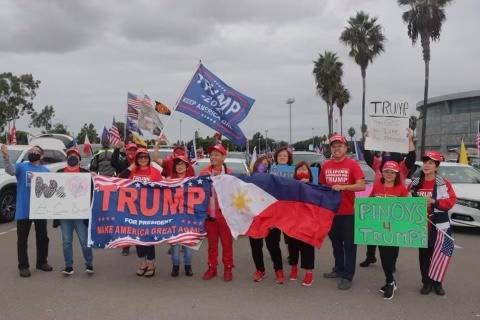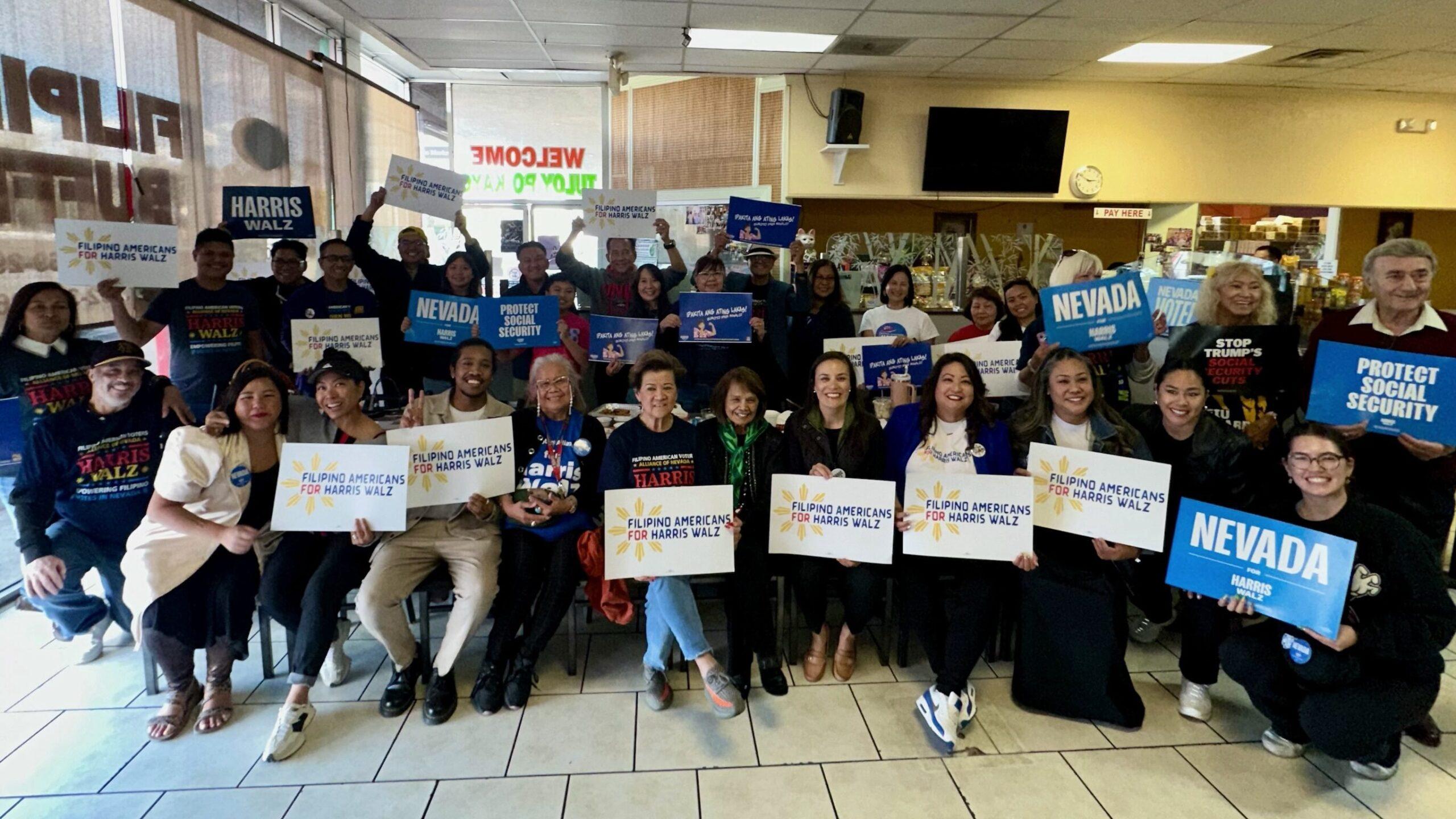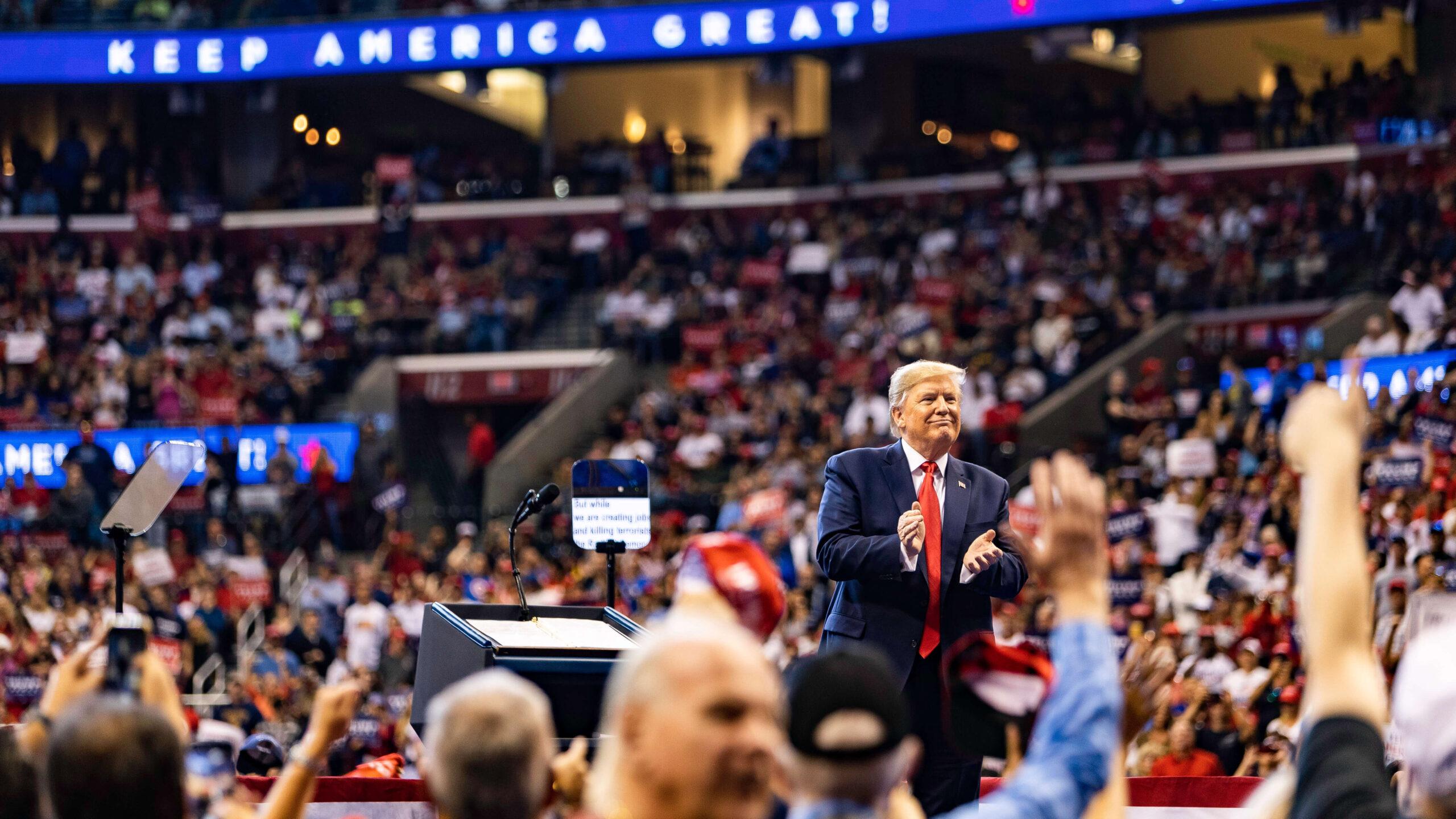With another election come and gone, Filipino Americans across all political walks of life are preparing for another presidency with Donald Trump.
As previously reported in the Asian Journal, the Asian American electorate is the fastest-growing voting bloc in the United States, and Filipinos are the third-largest Asian group in the country. (After Chinese Americans and Indian Americans.)
Though polls and surveys leading up to Election Day have poised the Asian American community as a guaranteed bloc for the Democratic Party, the reality of political behavior goes beyond sample sizes and percentages.
In other words, one truly cannot paint an accurate prediction of the outcome until the votes are counted.
As of Friday, Nov. 8, Trump secured 73,693,350 votes (295 electoral votes) and Vice President Kamala Harris received 69,406,833 votes (226 electoral votes), according to the Associated Press.

“The landslide speaks volumes about the Trump coalition and how much it has grown in the last decade,” Marc Ang, Filipino American conservative political organizer, told the Asian Journal on Wednesday, Nov. 6.
As a prominent Trump surrogate for the Filipino American community, Ang has been campaigning for the 45th—and now, 47th—president and shared what he expects from a second Trump administration.
Ang asserted that Trump will bring forth “common sense solutions” especially in the arena of foreign trade and economic balance.
“Trump is going to be a friend and a partner to the protection of the Philippines and our interests back in the home country,” Ang stated, adding that as a seasoned politico in Filipino American conservative politics, he is “excited to go back and push a lot of my initiatives within helping the Asian community.”

Melissa Ramoso, a co-founder and leader of the Filipino Americans for Harris-Walz campaign (FAFHW), lamented Harris’ loss, sharing that many communities in the U.S. may greatly suffer from a second Trump administration.
Ramoso—who previously led Fil-Am campaigns for Hillary Clinton and Joe Biden—referenced the MAGA conservative’s views and proposals that harm the rights of vulnerable communities.
“For our rights as women, the future of our children, what this could mean for immigrants, health care, science, education, democracy—it’s all on the line. It’s scary to think that we are going in reverse,” Ramoso said.
In 2020, Biden received a historic 81 million votes, the most votes ever cast for an American presidential candidate, a jarring contrast to the low voter turnout for Harris. Mirroring what many politicos and media analysts have said over the last few days, Ang believes that there were many factors going against the Harris campaign.
“Let’s say this to be very gracious: Kamala Harris had a very, very tough uphill climb for herself to even win this considering the voters blamed the Biden-Harris administration for the current bad shape of the economy,” Ang acknowledged.
Ang also stated that Harris’ relatively late entrance into the presidential race could have hurt her chances, saying Harris “was hoisted into this position without much preparation” and that Biden “may have won” if he had stayed the nominee.
“It’s a real slap in the face [to] the Democrats that voted for Joe Biden, for them to see that suddenly switched out,” Ang said.
Filipina American Brooke Santos, a New York City-based member of the Democratic Socialists of America (DSA), shared that she believes that Harris lost because of a “massive loss of faith” in the Democratic Establishment.
“I do think that there is a certain energy and fire behind MAGA Republicans, but I think it’s less to do with that and more to do with the Democrats not keeping up with their base—and not appealing to the more progressive, left-wing community,” Santos told the Asian Journal on Nov. 7.
As an organizer for leftist, progressive causes, Santos did not campaign for either Harris or Trump, noting that neither party “truly has the working class in mind—especially not the Democrats.”
“There are a lot of young Filipino Americans, even within DSA, whom I’ve spoken to that understand that our community is embedded within the workers rights movements in our country’s history,” Santos said.
She added, “By boasting endorsements from conservatives like Dick Cheney—who is largely responsible for the deaths of many of our troops as well as civilians in other countries—she really alienated a key part of the Democratic base, much of which is furthering left, or divesting from the Democratic Party entirely.”
However, Ramoso said that the lower voter turnout in this presidential election compared to the 2020 presidential election was a crucial factor in the outcome. According to the current vote count, 142.5 million registered voters participated in the 2024 election, a 12.7 million drop from 2020’s overall turnout, which was 155.2 million.
“People did not come out to vote, and that is a big reason why things are different this time,” Ramoso shared, adding that the Harris campaign “did the best they could.”
Santos shared that she saw “major flaws” in both major candidates and that Trump’s second election win was a wake-up call of sorts for liberal Americans.
“I think this will create a monumental shift in our country, especially among Democrats. Already those who have historically voted blue see that the obsolete and out-of-touch way that business has been operating within [the Democratic Party] really doesn’t work anymore,” Santos said, noting the number of progressive candidates that have won elections in the past decade.
Ramoso said that although many Filipinos who campaigned for FAFHW felt dejected in the aftermath of Election Day, she acknowledged the power that Filipinos have when they mobilize and organize.
As reported in the Asian Journal, Filipino candidates won several major races across all levels of government, including Christopher Cabaldon, the first Filipino elected to the California State Senate, and Jessica Caloza, the first Filipina American elected to the California State Assembly.
“So now we have, in both houses [of the California Legislature], two Filipinos which is history!” Ramoso said. “It shows that although it wasn’t the vice president’s time, it’s our community’s time.”






